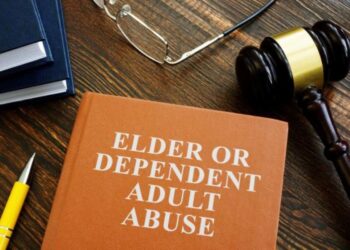Accidents happen in a split second and can cause confusion and an adrenaline rush for hours afterward.
This is not a problem until you decide to report the accident to your insurance company. Generally speaking, you should report it within 24 hours, but if you still feel a rush of adrenaline or shock, you must watch what you say.
A lot of people instinctively apologize or take the blame for an accident. If you do this while reporting the accident, your insurance company may try to obtain a fault admission from you. This means they will try to get you to state officially that you were at fault for the accident.
If you do this without thinking, it will be detrimental to your case should you pursue damages after the accident.
What Type Of Legal System Does The U.S. Use?
America uses a tort system, which requires liable parties to compensate victims of accidents or incidents. Compensation includes medical costs, lost income, and pain and suffering.
In some cases, punitive damages are more appropriate because of severe harm done to the victim (plaintiff). Punitive damages aim to punish the defendant and ensure full compensation for the plaintiff.
Tort law falls into three categories:
- Negligent torts: This refers to harm done by neglecting the reasonable standard of care. Accidents typically fall into this category.
- Intentional torts: This means harm caused by misconduct such as robbery, theft, fraud, and assault.
- Strict liability torts: This refers to acts that may harm people. Examples include manufacturing defective products, which means the company or specific manufacturer is liable for the harm done.
Fault-Based Insurance In The U.S.
When it comes to determining fault, insurance companies work according to percentages. The percentage of blame you are assigned after an accident will directly affect how much compensation you receive.
For instance, if you are 100% at fault for an accident, you likely will not receive compensation from your insurance company, and you might still be liable to pay for damages to the other party.
If you and the other party are to blame for the accident, your compensation is awarded based on your percentage of fault.
However, some states follow a pure contributory negligence system, which means any fault on your part will bar you from claiming compensation.
On the other hand, if your state follows a pure comparative negligence rule, you can still claim for the percentage you are not at fault. Also, modified comparative negligence means your percentage of fault reduces your compensation.
Understanding this system makes it easy to see why admitting fault can ruin your compensation case.
Why You Should Never Admit Fault
Even if saying sorry after a car accident seems like the right thing, it can immediately be misconstrued as you accept all the blame for the accident.
It is important to know that your insurance company (and the other party’s insurance provider) will use any admission of fault against you. They will not argue with you if you insist that you are to blame for the accident. Instead, they may deny your claim or offer an incredibly low settlement.
Furthermore, if you start blaming yourself and telling everyone it was your fault, you could miss other accident details that may tell a different story.
You should not take the blame on yourself if there is no investigation by your insurance company and lawyer. In fact, you should never take the blame and say anything out loud about blame, no matter who caused the accident.
You give away your bargaining position as soon as you admit fault to your insurance company. This means you have no leg to stand on when negotiating your settlement. Depending on what you say to the insurance provider, not even your lawyer can help you.
What to Do Instead of Admitting Blame
When you are still at the accident scene, do not say anything that can be taken as admitting fault. Instead, express your concern for the other party’s well-being or state that you are relieved everyone is okay.
Naturally, you should only say this if there are no serious injuries. You can also exchange contact information if there are no severe injuries or fatalities.
Do not say anything about being at fault when the police arrive, and when you speak to your insurance agency, give them only the facts about the accident.
Evidence Should Take Precedence
If you avoid taking blame, it is up to your lawyer and the insurance companies to establish fault. They can use the following types of evidence to do this:
- Police report: A police report typically outlines the accident scenario, including what the scene looks like and what witnesses say. Police officers also include their observations in the report.
- Witness statements: Statements from bystanders go a long way in helping to establish fault.
- Photos and videos: If you can, you should take photos and videos of the accident scene, including the surrounding area. This can help identify broken traffic lights and infrastructure that may have contributed to the accident.
- Dashcam footage: You may be able to use dashcam footage as evidence, but only if witnesses can corroborate or authenticate the footage.
What to Do If You Accidentally Admit Fault After an Accident
All is not lost if you accidentally admit fault. The insurance company must still have the facts to prove you were to blame for the accident. If they cannot, your lawyer may be able to set up negotiations with the insurance provider and move past your accidental fault admission.
Again, you can make things a lot easier for yourself if you refrain from saying anything that can be used against you.
Hire a Lawyer to Help You Navigate Your Legal Case
If you decide to pursue compensation and have not admitted fault, hire an experienced lawyer to help you.
Personal injury lawyers know the ins and outs of accident cases involving complex fault percentages, serious injuries, and insurance company disagreements.
Most importantly, you must try to stay calm and only give the necessary information about the accident when asked about it. When it comes to investigation and negotiating, leave it to your lawyer. This is the best way to prevent your words from being used against you.










